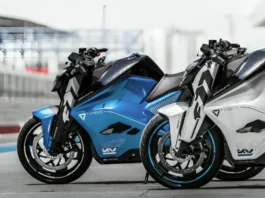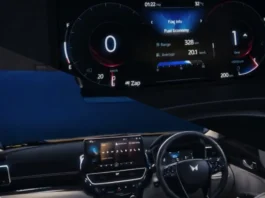Yulu Bajaj EV Scooty: A leading OEM and a modern Mobility-as-a-Service company have teamed up to form Yulu. The emphasis is on a ground-breaking electric 2-wheeler platform for efficient urban transportation. This special global partnership between the two businesses aims to revolutionise mobility and provide customers with affordable access, best-in-class transportation, and environmentally friendly commuting options.
On what the companies are focusing?
The Yulu-Bajaj partnership focuses on offering last-mile deliveries and sustainable mobility in urban areas. The correct insights are guaranteed by Yulu’s leadership in shared mobility. Leading R&D and manufacturing capabilities from Bajaj Auto support this common objective.
The company launch its new electric scooter
Yulu’s third generation e-scooters, Miracle GR and DeX GR, were developed in collaboration with Bajaj Auto’s Chetak Technology Ltd. using an AI-driven tech stack. These specially designed electric 2-wheelers are strong, durable, and energy-efficient. They are made to take into account the climate and road conditions in India. The end result is a fantastic customer experience and strong unit economics, which improve Yulu’s financial metrics.
Yulu Bajaj EV Scooty: More than 1 lakh scooters
By year’s end, Yulu’s goal of putting 100,000 electric scooters on the road is expected to increase revenues tenfold. The third generation of Yulu vehicles has already had an impact on shared mobility. resulting in the development of electric vehicles.
With a swappable battery
Yulu powers its fleet of electric vehicles with interchangeable batteries. Yuma Energy, a partner of Yulu, provides these batteries. At any of the 100 Yulu stations in Bengaluru, Mumbai, and Delhi, users can easily exchange them. This improves the convenience and effectiveness of the charging process. Instead of waiting for the vehicles to charge, riders can quickly swap out used batteries for fully charged ones. By 2024, there are plans to increase the network’s capacity to 500, further enhancing the usability and accessibility of its electric micromobility services. These purpose-built vehicles’ success depends on a number of variables, including the availability of battery charging stations and an efficient energy infrastructure.
Also Read: Electric scooters in India: Buying an EV can help you save a lot of money, we tell you how and where
Keep watching our YouTube Channel ‘DNP INDIA’. Also, please subscribe and follow us on FACEBOOK, INSTAGRAM, and TWITTER.



